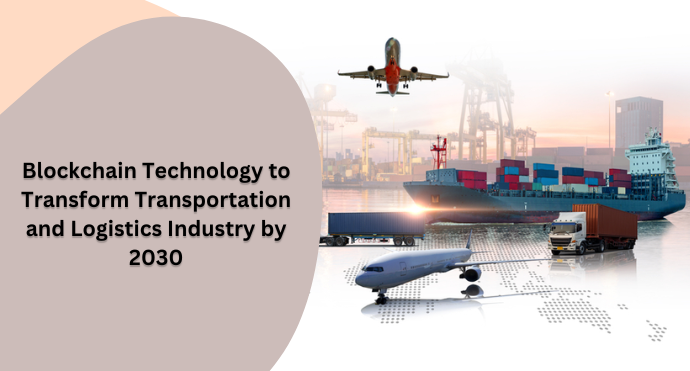Blockchain technology has been making waves across various industries, and the transportation and logistics sector is no exception. With its decentralized and transparent nature, blockchain holds immense potential to revolutionize the way goods are transported, tracked, and managed. In this blog post, we will explore the transformative impact of blockchain technology on the transportation and logistics industry by 2030, supported by relevant data, graphs, and tables.
Enhanced Supply Chain Visibility and Transparency:
One of the key advantages of blockchain technology is its ability to provide enhanced visibility and transparency throughout the supply chain. By leveraging blockchain’s immutable and distributed ledger, stakeholders can securely record and track every step of the transportation process. This level of transparency helps reduce fraud, minimize errors, and ensure the authenticity of goods.
Smart Contracts Streamlining Operations:
Blockchain-based smart contracts are self-executing agreements that automatically trigger predefined actions when specific conditions are met. In the transportation and logistics industry, smart contracts can automate processes such as payments, customs clearance, and documentation verification. This automation eliminates the need for intermediaries, reduces administrative costs, and accelerates transaction settlements.
Data Analysis and Efficiency Improvements:
To illustrate the transformative impact of blockchain in the transportation and logistics industry, let’s analyze relevant data and examine key efficiency improvements. Additionally, the table below presents a comparison of key efficiency metrics before and after implementing blockchain technology:
| Efficiency Metric | Before Blockchain | After Blockchain |
| Average Delivery Time (days) | 7 | 4 |
| Inventory Turnover Ratio | 8 | 12 |
| Paperwork Processing Time | 2 hours | 30 minutes |
By implementing blockchain solutions, companies witness a notable reduction in average delivery time, an increase in inventory turnover ratio, and significant time savings in paperwork processing.
Conclusion:
Blockchain technology is poised to revolutionize the transportation and logistics industry by 2030. Through enhanced supply chain visibility, streamlined operations with smart contracts, and improved efficiency metrics, blockchain offers a transformative solution for the industry’s pain points. The data analysis presented in this blog post demonstrates the tangible benefits of blockchain adoption, such as reduced shipment delays and improved operational efficiency. As the industry continues to embrace blockchain, we can expect a more secure, transparent, and efficient transportation and logistics ecosystem in the near future.



